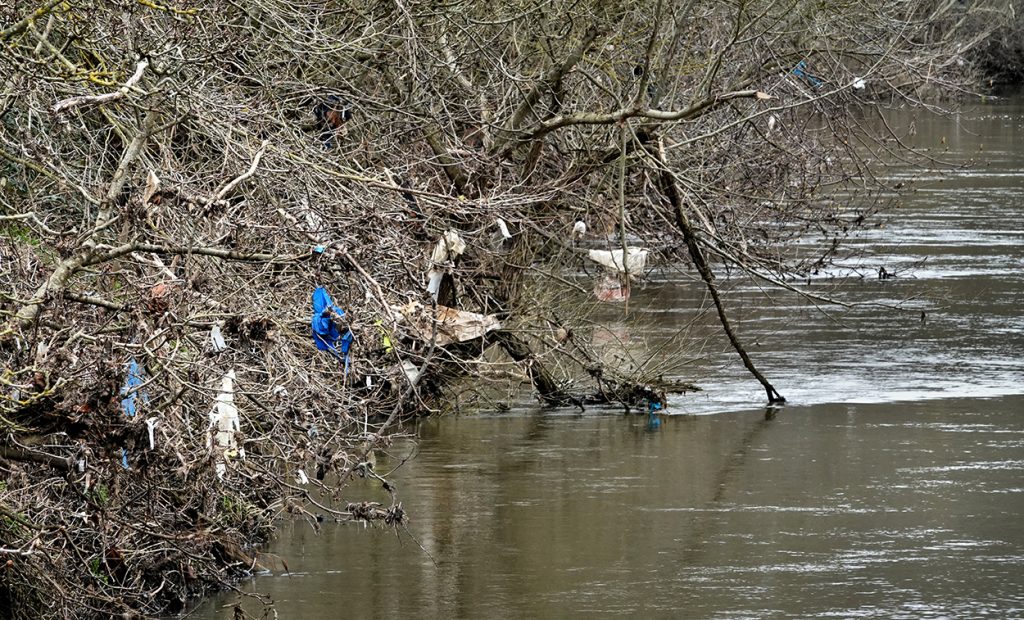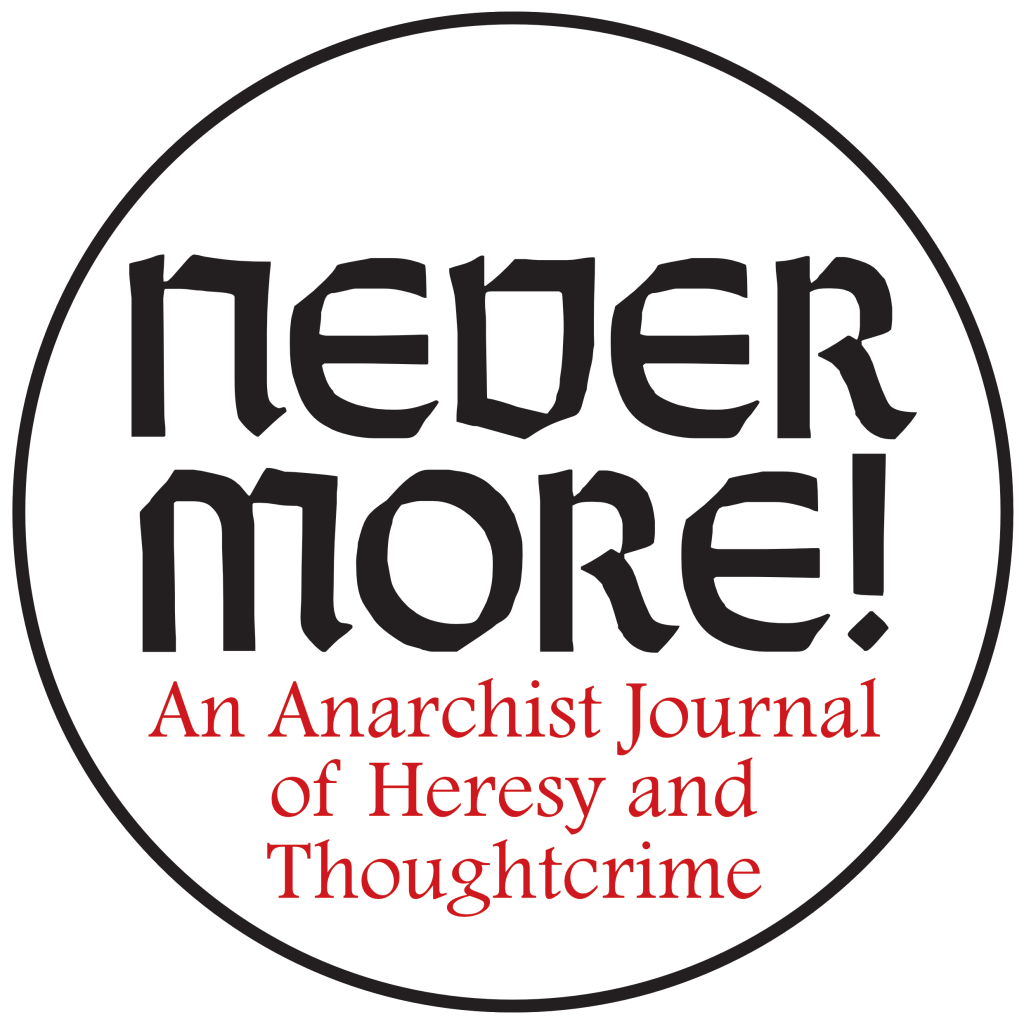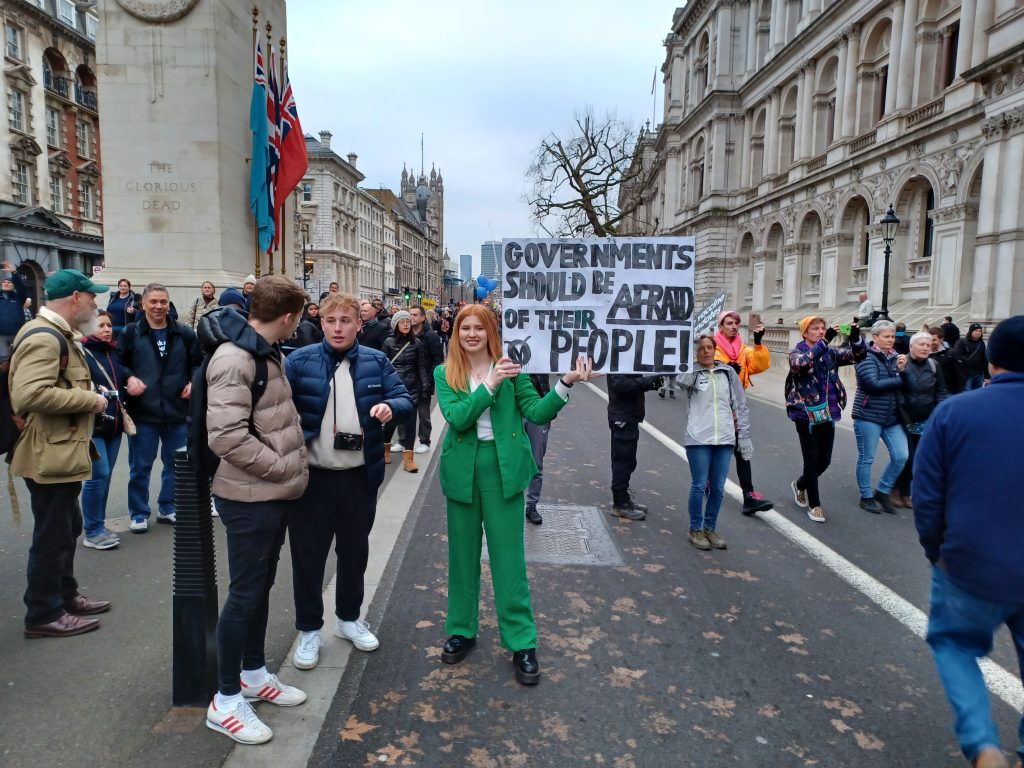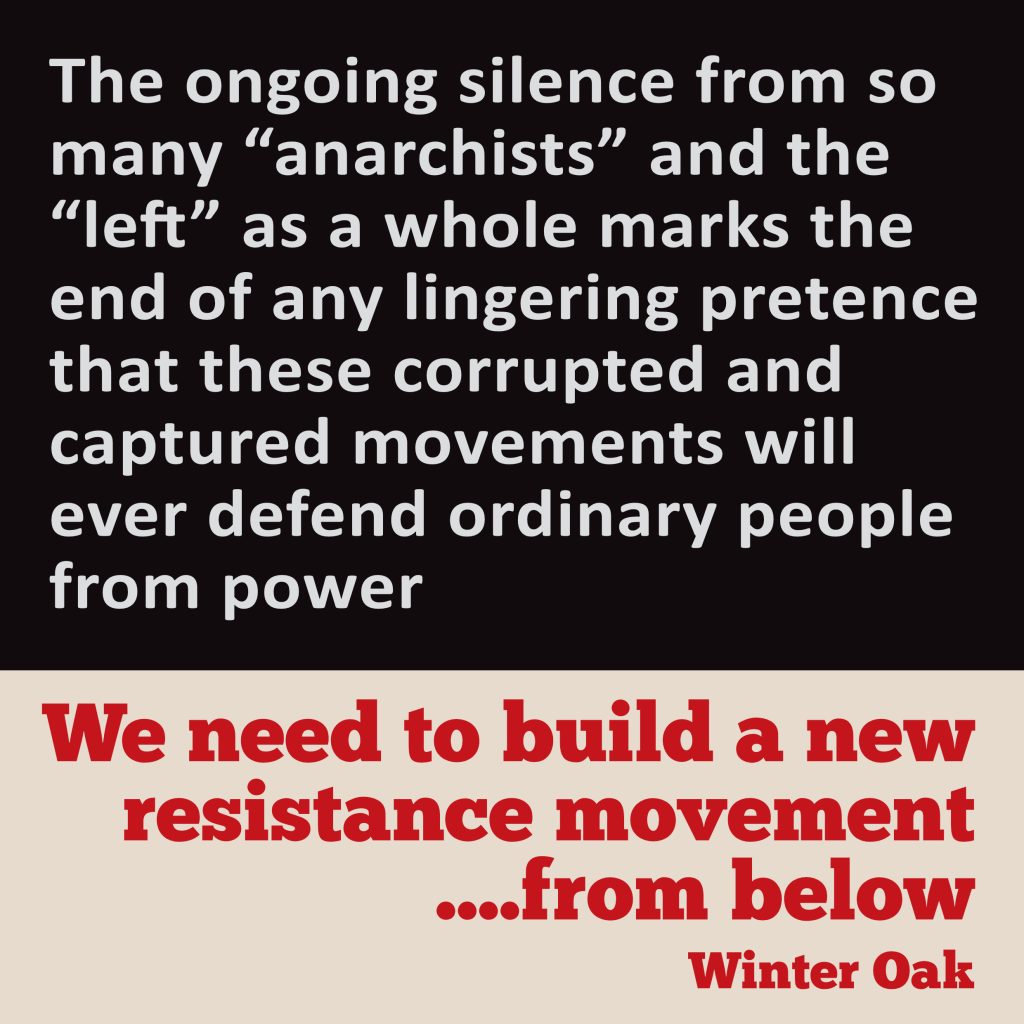
The Stirrer
I’m far from the only person feeling that the parameters of what can and cannot be discussed and debated these days have been narrowed down over the last few decades. A tendency that for a variety of reasons, has accelerated over the last decade. Many of those noting this are in academia where the narrowing down of what can and cannot be discussed has been an increasingly depressing aspect of life in the universities. This has got to the point where in my view, it’s legitimate to ask the question – what is the point of the university? Some academics are doing what they can to fight back against this depressing and worrying trend – Academics For Academic Freedom.
I’m not an academic. I’m just an ordinary bloke with over six decades on the clock and a fair bit of life experience gained living through those decades. I’m also an activist, albeit one who is constantly asking this question – Why do I do this to myself? 14.4.23. Thinking back over the last ten years of my activism, I’ve endured many situations where the parameters of what can and can’t be discussed have been narrowed down to the point where any dissent leads to exclusion. This is what I write about in this piece. At the end of this piece, I try to draw some threads together and discuss why those of us activists who value open debate have been obliged to try and set up a new movement because the existing ones have utterly failed us. I also argue why, now more than ever, open debate and discussion has to make a return.
Narrowing down the parameters

Gender identity
For me, the first experience of being forcefully told what can and can’t be questioned was with the thorny issue of gender identity politics. An issue that for me came to the fore in no uncertain terms at the ill fated London Anarchist Bookfair that took place on Saturday 28 October 2017. The organisers had allowed a number of radical and gender critical feminists to distribute leaflets at the event that were critical of some aspects of the trans rights movement. As there were a fair few supporters of trans rights in attendance at the bookfair, it came as no surprise that the atmosphere at the event deteriorated throughout the course of the day and there were some pretty ugly scenes as trans rights activists confronted the organisers.
At that point in my activism, I was very much focused on community activism and the issue of gender identity politics wasn’t really something that came up on my radar very often. After the disruption of the bookfair, I was tasked by my comrades out in Essex to look into the issues that led to the confrontations. This I duly started to do and that was when I started to find out what I was and wasn’t allowed to question when it came to gender identity politics. It turns out there was a lot I wasn’t allowed to question if I wanted to remain within the anarchist movement.
I was told that a lot of the issues I wanted to ask some pretty searching questions about ‘weren’t up for debate’. I found that when I persisted with asking difficult questions and not towing the accepted line that a number of comrades turned on me, swiftly becoming former comrades! Let’s just say that it was an episode that left its scars on me…

A red flag for me is being told something ‘isn’t up for debate’. I want to know why it isn’t up for debate. Surely, if trans rights activists are so certain about their beliefs, they’d be confident enough to debate with those who disagree with them? Refusing to test their beliefs by not debating with their opponents is bad enough. What’s a lot worse is when they use physical intimidation amongst other tactics to ensure those who disagree with them cannot speak. Do I want to be in a movement which takes this attitude? The answer I chose was no, I don’t!
The response to Covid
I went through 2018, 2019 and into the early part of 2020 operating at a distance from the movement while managing to find a few open minded comrades I could still work with. Then in March 2020, Covid came along. Initially, not knowing what Covid was, like most people, I went along with the first wave of restrictions. That going along with the restrictions probably lasted about a month before I started to realise that certain things weren’t adding up and that there were questions about the narrative we were being fed that I felt needed to be asked. There were also questions about ‘the science’ we were told to accept that I wanted to ask. So, I started to ask those difficult questions and continued to do so throughout 2020 and 2021.
One of those questions was about the way the response to Covid was being used to accelerate the implementation of the Fourth Industrial Revolution (4IR). This related to the test and trace apps and then, the vaccine passes that they tried to foist upon us, all hosted on smartphones. The kind of technologies that once embedded and accepted, could be used by authorities with malevolent intentions to control and restrict many aspects of our lives.
Whatever techniques the government, the World Health Organisation and other authorities were using to persuade people that all of this surveillance technology was necessary to ‘defeat’ Covid were certainly working because I lost count of the number of times I was called a conspiracy theorist!

Having to endure the weirdness and the isolation of the lockdowns in 2020 was bad enough. Being called a conspiracy theorist by some of my remaining (now former) comrades simply made matters worse. During 2021, I attended a number of the anti-lockdown protests in London to see for myself what the various currents of opposition to the lockdowns, the experimental mRNA shots and the threatened vaccine mandates were really about. My vehicle of engagement was a number of specially produced editions of The Stirrer paper. Handing these out to people attending the protests resulted in a number of interesting conversations.
The experience of doing this prompted me to write my own assessment of what these currents of opposition were about and why anarchists should have been seeking to engage with some of them. This assessment was duly sent off to a number of anarchists and activists of my acquaintance and suffice to say, it fell on stony ground. Well, at least I tried… What I did get instead was a lot of flak for showing up on those protests. So there I was, attending these protests as part of a process of investigating a new social and political phenomena and all I get for my efforts are accusations of being a conspiracy theorist and falling out with even more comrades.
Questioning the direction of the environment movement
I consider myself someone to be very concerned about the environment. I’ve a lot of time for grassroots groups fighting threats to the environment where they live. There are numerous examples of groups across the Avon region who do just that. What I and many others are suspicious of are environmental groups and campaigns with pretty slick public relations that suddenly seem to spring out of nowhere and whose agendas somehow seem to overlap with the implementation of the 4IR. I’m not knocking the activists who get involved in these campaigns, all I’m asking is that they stand back and take a look at how their concerns are getting exploited by actors whose agenda is anything but green: A way forward? 20.5.23.

Yes, we are in an environmental crisis, there’s no denying that. From habitat and species loss to dying rivers literally full of shit, the evidence of that crisis is there for all to see. Then there’s the stark fact that while we live in a society and economy based on an assumption of continual growth, we also live on a finite planet and that at some point the resources to sustain that model of life will start to run out. These are issues that I’ve done my level best to attempt to address in the latter half of this piece: The future of movement on a finite planet 20.2.23.
My view is that it’s precisely because of the depth and scale of the crisis that we face, the strategy, tactics and motivations of some of the environmental campaigns that have seemingly sprung out of nowhere do need to be questioned. The fact that every time I or others do this, we get our knuckles wrapped, is getting beyond tedious now.
Building a movement of free thinkers
It was during 2020, that I found some like minded anarchists and activists online. When it felt like a lot of former comrades had turned against me, it was good to know there were people who had my back. The only downside is that we’ll probably never meet face to face in real life because they’re scattered across the globe from France to Mexico and many other points. That was one of the few positives to come from the Net it that it enabled a loose coalition of free thinkers to form and operate. Since then, this loose coalition that has spawned projects such as Nevermore! A project that challenges the 4IR/great reset, challenges transhumanism, questions gender identity politics and seeks to redefine what anarchism means. A project where we can speak our minds and have reasoned discussion and debate.

A project that, along with The Acorn from Winter Oak has received a lot of flak from former and some soon to be former comrades. It seems that thinking differently and asking awkward questions is not to be tolerated and those who persist in so doing are given a hard time. Pretty much every time I post a link on social media to a piece on Nevermore! or The Acorn, the snarky comments start to roll in. Some of that is down to us questioning the way some sections of the environment movement have allowed themselves to be cynically used by the likes of the World Economic Forum (WEF), and the various entities that operate behind the scenes there, to promote agendas that are neither green nor just in any meaningful sense of the word.
Why free and open debate has to make a return
I’ve outlined a number of instances from my own experience where it feels that the parameters of what can and can’t be discussed are being narrowed down. While state censorship has played a part in some of these instances, overwhelmingly, it feels as though it’s other activists who are willingly playing a role in deciding what can and can’t be discussed. In some instances, particularly with gender identity politics, activists are physically trying to stop people they don’t agree with from speaking out. Away from this, it’s mainly activists saying there will be consequences for those speaking their own minds and deviating from the script. The consequences range from being repeatedly called a conspiracy theorist and insulted through to being excluded from the movement and made to feel unwelcome or being actively barred from certain events.

Try as they might to narrow down the parameters of what can and can’t be discussed, overall, those activists who want to dictate the agenda are not winning. If anything, they’ve unwittingly created a backlash as a growing number of people start to ask why certain topics are effectively off the agenda. They’re also undermining their own movements as the activists who want critical discussion quit and find new outlets, leaving behind what increasingly feels and to an outsider, looks like a cult.
When a movement starts to look like a cult, not only will it lose support, the issues they purport to care about will be dismissed.
That’s worrying because as I mentioned earlier, we are in an environmental crisis. There are crucial issues ranging from pollution to resource use that urgently need to be addressed. We can’t afford to let those environmental groups who have allowed themselves to be used for other agendas, wittingly or unwittingly, derail the change that has to happen to bring about a genuinely sustainable and just world. That’s why, now more than ever, we need a culture of open debate where people can feel free to speak out without the fear of cancellation and the consequences that stem from that.
